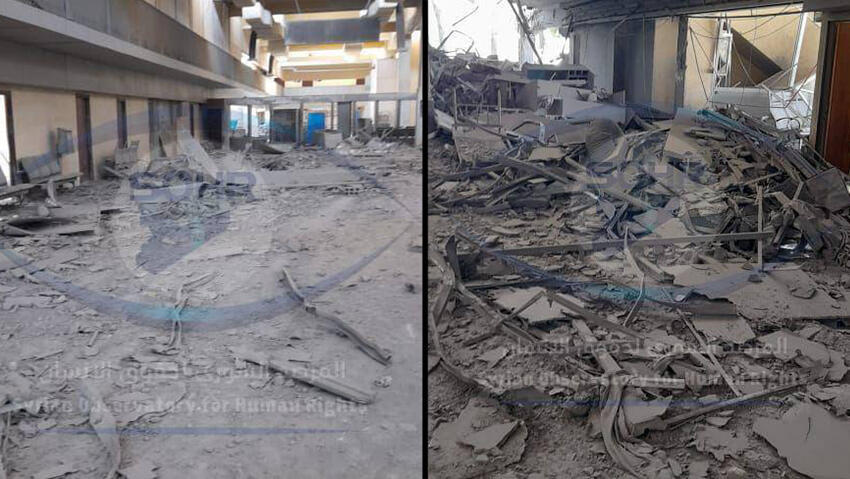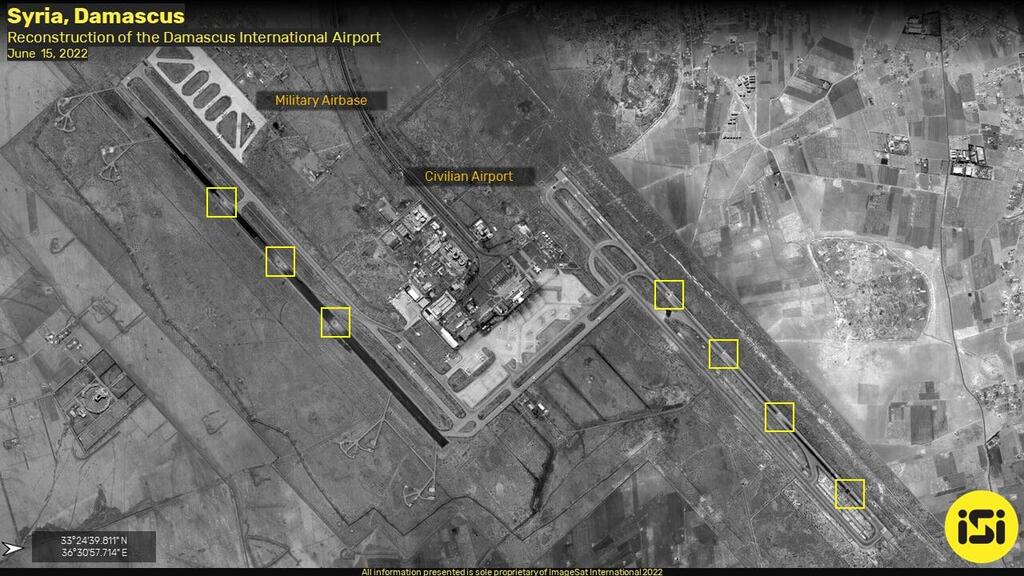Getting your Trinity Audio player ready...
Israeli Ambassador to Russia Alexander Ben Zvi was summoned on Wednesday by the country's foreign ministry to provide clarifications on a strike on Damascus International Airport last week that was widely attributed to the Jewish state.
The Russian Foreign Ministry said in a statement that Russian Deputy Foreign Minister Mikhail Bogdanov had expressed to Ben-Zvi Moscow's deep concern regarding the attack, which the Russians said had damaged the airport's runway, navigation systems, and buildings, and caused damage to international air traffic.
The ministry also stated that the attack had disrupted the inflow of humanitarian aid from the United Nations to millions of Syrians in the country ravaged by over a decade of civil war.
Bogdanov told Ben-Zvi that the explanations Jerusalem provided so far did not satisfy the Kremlin and that Moscow would not allow Syria to become a "battlefield" for other countries as it helps in fighting terrorism across the region.
Syrian state media reported Wednesday that Transport Minister Zouhair Khazim had visited the airport in the Syrian capital and inspected its reconstruction works. It is not yet clear when flights to or from the airport will resume.
Before Ben-Zvi's summoning, Moscow issued a strong condemnation of the attack that Syria has attributed to Israel.
3 View gallery


Damage seen at Damascus International Airport after strike attributed to Israel
(Photo: Courtesy)
In a statement published last Friday by Russian Foreign Ministry Spokesperson Maria Zakharova, Moscow called on Israel to “stop this vicious practice” of targeting civilian infrastructure.
"We are compelled to reiterate that the ongoing Israeli shelling of the territory of the Syrian Arab Republic, in violation of the basic norms of international law, is absolutely unacceptable. We strongly condemn Israel's provocative attack on the most important object of the Syrian civilian infrastructure," the statement read.
"Such irresponsible actions create serious risks for international air traffic and put the lives of innocent people in real danger. We demand the Israeli side to stop this vicious practice."
Satellite images published last week by Israeli intelligence and imagery firm ImageSat International (ISI) shed light on the extent of the damage, with three craters visible on each of the airport's two runways.
3 View gallery


Satellite images show extent of damage to Damascus International Airport's runways after strike attributed to Israel
(Photo: ImageSat International (ISI))
According to a report by the firm, one runway serves the civilian section of the airport, while the other serves its military section.
Last Sunday, Syria released new images from the Damascus airport as part of Syrian Prime Minister Hussein Arnous's visit to the site to inspect the reconstruction work.
The images show showed heavy machinery near the runways, as well as damage inside one of the buildings serving the airport.
The Syrian Observatory for Human Rights, a Syrian opposition group based in the United Kingdom, reported the damaged building was a terminal used by senior military personnel from Iran and Hezbollah traveling to Syria.


